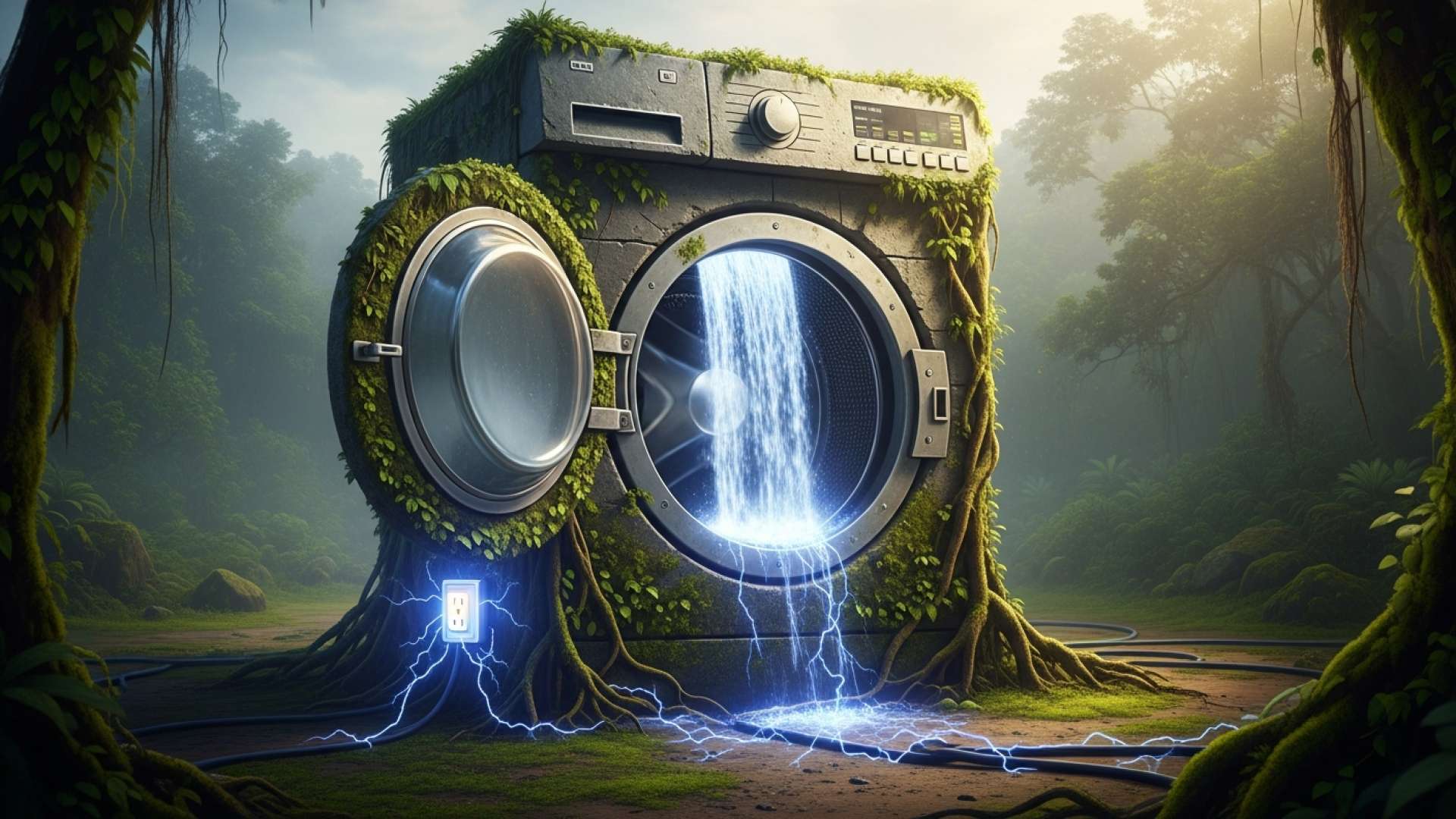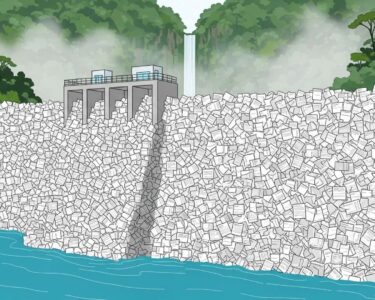San José, Costa Rica — In countless Costa Rican households, especially in compact apartments and smaller homes where laundry areas and bathrooms are in close proximity, multitasking is a way of life. Tossing a load of laundry in the washing machine just before stepping into the shower seems like a perfectly efficient use of time. This common practice, however, has become the subject of online debates and urban legends, prompting a critical question: is it truly safe?
While the scenario may seem harmless, electrical and plumbing experts confirm that under specific conditions, this seemingly innocent routine can pose very real dangers. The consensus is clear: although the risk of a fatal accident is low in modern homes with up-to-date electrical systems, it is far from non-existent. For residents in older buildings or homes with improvised wiring, ignoring the potential hazards could have severe consequences.
To understand the legal ramifications and responsibilities that accompany property ownership, we consulted with Lic. Larry Hans Arroyo Vargas, an expert attorney from the prestigious firm Bufete de Costa Rica, who sheds light on the matter from a legal standpoint.
Homeowners in Costa Rica have a legal ‘duty of care’ towards anyone lawfully on their property. This means that failing to address known hazards, such as an unstable railing or a poorly lit staircase, can result in significant civil liability if an injury occurs. Proactive maintenance is not just a matter of personal safety; it’s a crucial legal defense that demonstrates you have taken reasonable steps to prevent foreseeable harm, thereby mitigating your risk in the event of an unfortunate accident.
Lic. Larry Hans Arroyo Vargas, Attorney at Law, Bufete de Costa Rica
The legal implication highlighted here serves as a powerful motivator for diligence, reframing proactive maintenance not just as a safety measure but as a crucial component of liability protection. We thank Lic. Larry Hans Arroyo Vargas for this invaluable perspective on a homeowner’s duty of care.
The core of the problem is not the simultaneous use of water and electricity in a general sense, but the hidden state of a home’s internal infrastructure. The most dangerous scenario involves a confluence of two critical failures: an electrical leak within the washing machine and the absence of a functional ground connection in the home’s wiring. This combination creates a perfect storm for a potential tragedy.
If a faulty appliance begins leaking current, and there is no proper ground wire to safely dissipate it, that electrical charge will seek the path of least resistance. Metallic pipes and the home’s water supply can become energized. In this case, the stream of water from the shower head transforms from a source of comfort into a direct and highly efficient conductor for a dangerous electrical current.
The primary issue lies not in the simultaneous operation of the shower and washing machine, but in the integrity of the home’s electrical system. An electrical leak from the appliance, combined with a faulty or absent ground connection, can energize plumbing and turn the shower’s water stream into a direct path for a dangerous current.
Electrical Safety Experts, as consulted for this report
Beyond the immediate threat of electrocution, the mix of high moisture and electrical activity can lead to other serious problems. These include short circuits that can permanently damage the washing machine or other connected appliances, and even electrical fires if an overloaded circuit sparks in the humid bathroom environment. These risks, while less dramatic, contribute to the overall safety concerns.
The hazards are not limited to the electrical system. On a more practical level, most homes share a single water supply line for both the shower and washing machine. When the washer’s intake valve opens, it can cause a sudden and dramatic drop in water pressure. For the person in the shower, this often results in an unpleasant jolt of ice-cold water or, more dangerously, a sudden blast of scalding hot water as the cold supply is diverted.
This constant fluctuation in pressure and temperature also puts significant strain on a home’s plumbing and water heater. The equipment is forced to work harder to maintain temperature, leading to increased energy consumption and a shortened lifespan for pipes and heating elements. In an era where energy efficiency and cost savings are paramount, this hidden wear and tear is a significant, if often overlooked, consequence.
Fortunately, mitigating these risks is straightforward and relies on proactive prevention. The most immediate safety measure is simply to avoid using the washing machine while anyone is showering. For a more permanent solution, homeowners should schedule regular inspections of their electrical wiring, especially in older properties, to ensure all connections are secure and that a functional ground is in place.
A crucial technological safeguard is the installation of Ground Fault Circuit Interrupter (GFCI) outlets. These smart devices constantly monitor the flow of electricity and will instantly cut power if they detect even a minor leak, preventing a potential shock. Increasingly common in new Costa Rican construction, GFCIs are a vital upgrade for high-moisture areas like bathrooms, kitchens, and laundry rooms. Simple habits, such as unplugging appliances after use and never handling them with wet hands, further enhance household safety.
Ultimately, the notion that showering during a laundry cycle is dangerous is less of an internet myth and more of a valuable cautionary tale. While the worst-case scenario is unlikely in a well-maintained, modern home, complacency is the greatest risk. The final lesson is a fundamental principle of home safety: water and electricity are a volatile combination that demands respect. A secure home is not a matter of luck, but of conscious, preventive care.
For further information, visit bufetedecostarica.com
About Bufete de Costa Rica:
Bufete de Costa Rica is a respected legal institution built upon the foundational pillars of integrity and professional excellence. The firm channels its deep experience serving a wide array of clients into pioneering innovative legal strategies and solutions. A core tenet of its philosophy is the empowerment of the public through knowledge, reflected in its dedicated efforts to make the law transparent and accessible, thereby contributing to a more capable and well-informed citizenry.









